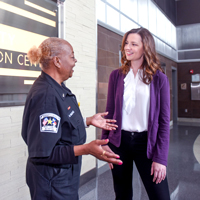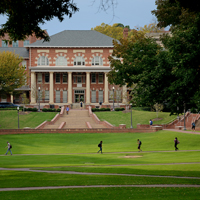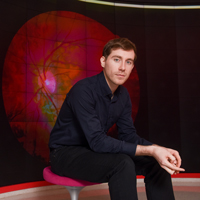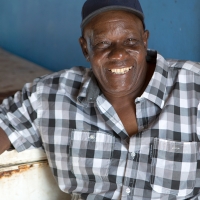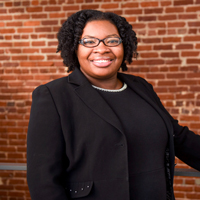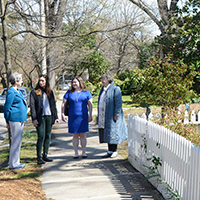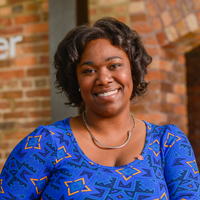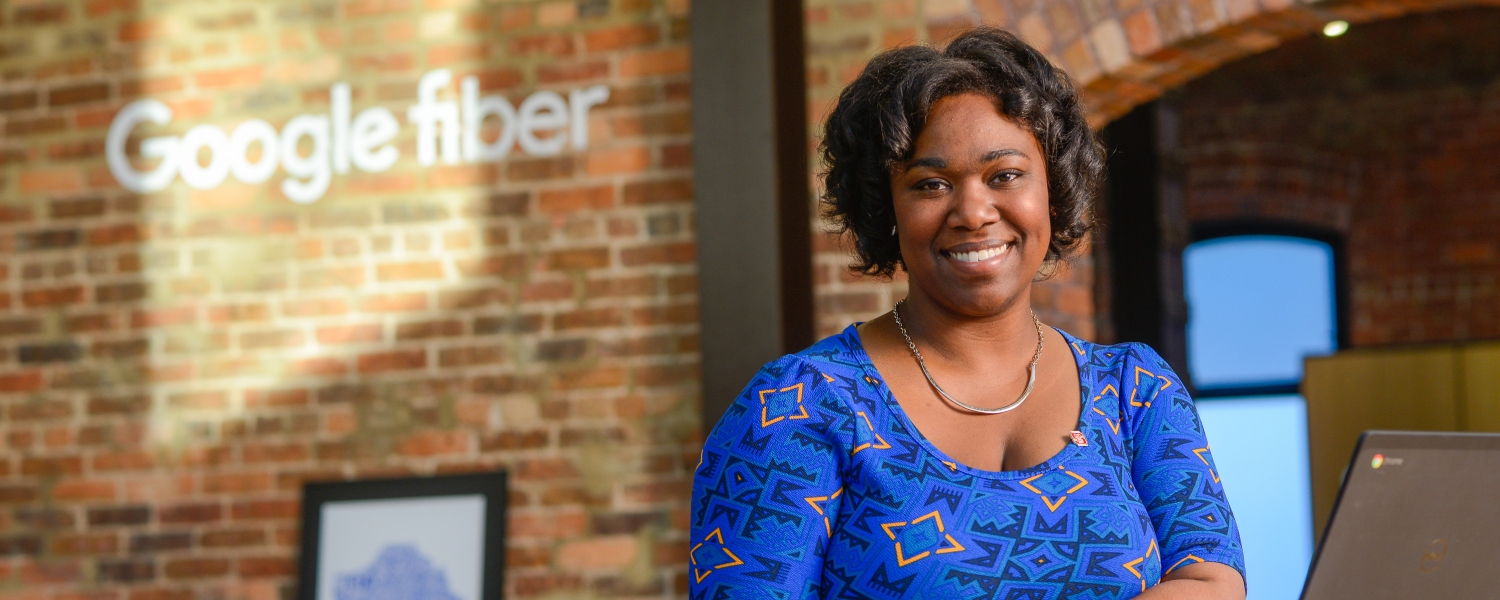
Bridging the
Digital Divide
Tia Bethea says there’s a red thread connecting the various jobs she’s had during the past decade. Her use of the color red in that image is no accident.
An NC State graduate in sociology (B.A. ’04) and liberal arts (MALS ’15), Bethea has worked in nonprofits, philanthropy and, as of late, the digital realm. Each role has revolved around community service — a passion she said she first discovered at her alma mater.
“NC State is a place where you are pushed to work beyond the walls of campus,” Bethea says. Bethea is a community impact manager for Google’s high-speed internet service in the Triangle area. Working out of Google Fiber’s new Fiber Space in downtown Raleigh, Bethea collaborates with community partners to bridge the digital divide by improving internet access and digital literacy in places lacking service.
About 35 percent of Raleigh residents who earn less than $35,000 per year don’t have a dedicated internet option in their home, according to census data. Instead they’re often relying on their cell phones, WiFi hot spots or other devices that require lots of data and typically incur higher costs, Bethea says. Otherwise, they’re not using anything at all.
35%
Percentage of Raleigh residents earning less than $35,000 per year who don’t have dedicated internet options at home
Bethea helps broker partnerships with local agencies such as the Kramden Institute, the Triangle Literacy Council, the United Way of the Greater Triangle and local housing authorities, among others. Together, they extend service and offer digital literacy training to populations in need.
For example, Google Fiber’s first community impact project in the area leveraged resources from three agencies to bring a digital literacy class for older adults to a public housing complex in Durham. Bethea attended the first class, where she noticed several of the 12 attendees couldn’t turn on a computer and didn’t know how to use a mouse. When she returned a few weeks later for class graduation, however, things were different.
“When one woman received her certificate of completion, she was crying and said, ‘I have never graduated from anything before,’” Bethea says, adding that the participants received a computer for finishing the class.
“Another person, a gentleman named Jimmy, grabbed me and said, ‘I got a job!’” she adds. “Jimmy got a job because he knew how to get on the computer, he knew to go to the library because they had access there and he knew how to search for jobs from the job-readiness training included in the class.”
Community Focus
Some of Bethea’s relationships with area partners stem from connections she made years ago during her first job out of college. After interning at the Boys & Girls Club of Wake County on the way to her bachelor’s degree at NC State, Bethea took a full-time volunteer coordinator position at the nonprofit when she graduated. She stayed in the position, which evolved into a role as director of corporate and individual partnerships, for 10 years.
NC State is a place where you are pushed to work beyond the walls of campus.
“I engaged volunteers, alumni and corporations that not only want to invest in the clubs but also contribute time through volunteering with the kids,” Bethea says. “I’ve watched some of the club members from elementary school to now being in college. You realize work like that leaves a legacy.”
Then Bethea worked as a fundraiser for Leadership North Carolina, a nonprofit that connects corporate executives to networking and service opportunities in the state. She also spent two years as a development officer for the Kenan Fellows Program for Teacher Leadership at NC State. The program, which provides K-12 teachers with real-world professional learning experiences, is funded by support from corporate, education and foundation donors.
“The Kenan Fellows Program opportunity allowed me to marry two of my passions: my passion for youth and this new experience I had with working with executives,” Bethea said. “For two years, I helped more than 100 teachers get paired with big companies, small companies, farms, universities and other groups all across the state, to make sure they could take what they were learning about the real world and implement it in the classroom.”
High-Tech Context
In 2012 Google Fiber announced it was coming to Raleigh. Bethea, who focused her MALS degree in big data analytics, applied for the community impact position a couple of years later with no expectations. When the company offered her the job, she couldn’t turn it down.
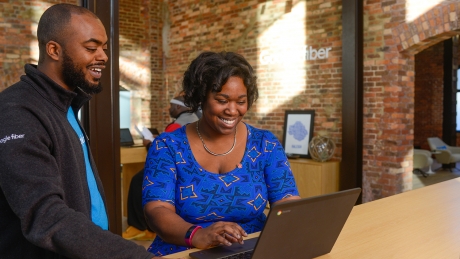
“It’s a great opportunity to bring these various nonprofits to the table and help them figure out new ways to bridge the digital divide,” Bethea says. “In our society, you have to be able to use a computer and the internet. It’s a necessity.”
Outside of work, Bethea’s big family keeps her busy. She and her husband, Rodriguis, have four kids. She’s also active in her church, Crossroads Fellowship in Raleigh.
A native of Wilmington and a first-generation college student, Bethea is thankful for the path she chose at NC State. After first envisioning a career as a biomedical engineer, her degree in the social sciences opened the door to nonprofits and philanthropy in a high-tech context.
“More and more companies are looking for people who are a hybrid — they can have an analytical aptitude and also tell you why the data matters,” Bethea says. “My degrees from NC State have allowed me to gravitate toward both of those things.”
CATEGORIES: Alumni, MALS, Sociology, Spring 2017

